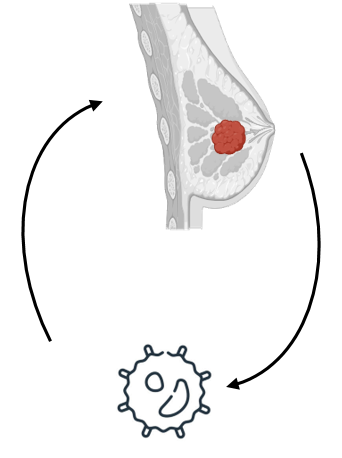
Our science
XEMPERIA is redefining cancer detection and monitoring
At XEMPERIA we believe that science is the driver of innovation. Our cutting-edge solution are based on many years of solid scientific research inspired by nature and conducted in the founder’s laboratory.
● An immune cell-based approach for early cancer detection inspired by the body’s natural response to infections. Much alike during infections, cancers stimulate the immune cells and we identified molecular determinants within circulating immune cells associated with cancer.
● DNA based technology to engineer nano sensor for sensitive and precise detection of RNA/DNA more convenient than current technologies. Based on DNA technology we developed nano sensory for the easy detection of miRNA and cancer-associated DNA mutations in plasma.
XEMPERIA’s liquid biopsy approaches are adaptable to other cancers and conditions.
XEMPERIA’s innovation will save lives and generate lasting value across the healthcare system.

● Leveraging the immune system as a natural sensor for breast cancer early detection
Cancer starts quietly, deep within the body, and can remain invisible for a long time. At the University of Fribourg, we uncovered something extraordinary: long before breast cancer is visible, the immune system already knows it’s there.
By listening closely to these early immune signals through cutting-edge technologies, we identified a unique immune fingerprint in blood immune cells that reveals breast cancer in its earliest stage. This innovation led to the development of a proof-of-concept PCR test that can detect breast cancer at its earliest stage.
What sets our test apart? It doesn’t look for the tumor itself—it reads the body’s immune response to it. This revolutionary approach is based on solid biology and offers unparalleled precision and could transform how breast cancer is detected, opening the door to earlier intervention, better outcomes, and saved lives.
“About Switzerland” presented our technology in Autumn 2025.

● DNA-nanotechnologies to detect tumor-associated biomarkers in liquid biopsies
Circulating cell-free DNA and RNA are promising cancer biomarkers in liquid biopsies. They offer critical insights for cancer treatment selection and monitoring. However, accurately measuring DNA, RNA and mutations in a patient’s blood remains a significant challenge. Current technologies (PCR and NGS) are costly, time-consuming, and require highly specialized laboratory infrastructure.
There is a growing demand for rapid, precise, and user-friendly methods to detect circulating nucleic acids to advance and personalize cancer patient care.
At the University of Fribourg we have developed innovative nanosensors for easy, flexible, precise and ultra sensitive detection of nucleic acids requiring only minimal preanalytical steps.
At Xemperia, we believe early detection isn’t just science – it’s hope. And we’re turning that hope into reality.
Interested in knowing more?
- © 2025 Xemperia. All rights reserved | Imprint | Design: ZebraZbinden | Development: FRESCHI IT